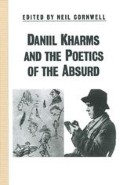Abstract
The historico-ideological reality lying behind Kharms’s poem ‘1st Destruction’ has been explained and reconstructed in detail by Lazar Fleishman in his article of 1987 [translated and reprinted above, Ed.]. Without such a reconstruction, much in this poem would have remained not entirely comprehensible. First and foremost at least an elementary knowledge of the history of the Soviet calendar is called for here; namely, the fact that from October 1930 the Soviet Union converted to a five-day week of four working days and one day off and to a new system of year-counting, starting from 1917 and not from the birth of Christ (the new year was to be observed on 7 November; this system was abolished in June 1931; for details, see Fleishman, above; Seleshnikov, 1977, pp. 169–71). As Fleishman has shown, this calendar system in particular entered the structure of ‘1st Destruction’.
Access this chapter
Tax calculation will be finalised at checkout
Purchases are for personal use only
Preview
Unable to display preview. Download preview PDF.
References
S. I. Seleshnikov, 1977: Istoriia kalendaria i khronologiia. 3rd edition.
Editor information
Editors and Affiliations
Copyright information
© 1991 Neil Cornwell
About this chapter
Cite this chapter
Faryno, J. (1991). Kharms’s ‘1st Destruction’. In: Cornwell, N. (eds) Daniil Kharms and the Poetics of the Absurd. Studies in Russia and East Europe. Palgrave Macmillan, London. https://doi.org/10.1007/978-1-349-11642-3_12
Download citation
DOI: https://doi.org/10.1007/978-1-349-11642-3_12
Publisher Name: Palgrave Macmillan, London
Print ISBN: 978-1-349-11644-7
Online ISBN: 978-1-349-11642-3
eBook Packages: Palgrave Literature & Performing Arts CollectionLiterature, Cultural and Media Studies (R0)

